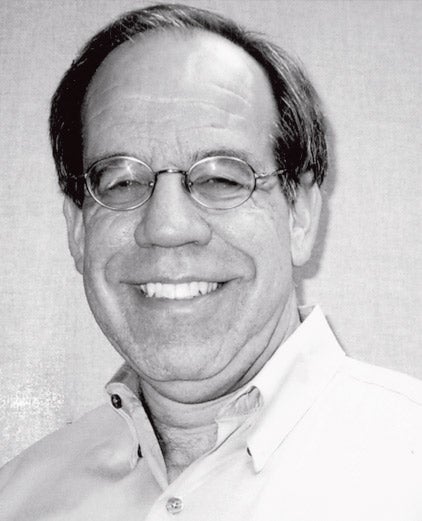It was December 2000 in Ingushetia, Russia, where 170,000 displaced citizens of neighboring Chechnya were hiding from Russia’s federal forces. Leonard Rubenstein ‘ 75 sat talking with a young man, one of dozens of Chechens he interviewed during his monthlong stay. The executive director of Physicians for Human Rights had traveled to this troubled place to document the torture and other human rights abuses suffered by Chechen civilians at the hands of the Russian army. Though he knew things were bad for the Chechens, this boy brought their plight painfully close to home.
Mosvar (not his real name–PHR uses pseudonyms to protect individuals) was 18 years old–the same age as Rubenstein’s son, Alex. While Alex filled out college applications back in Alexandria, Va., Mosvar was arrested in a sweep of his Chechen village without any pretext of legal authority, according to PHR. Women from Mosvar’s village screamed in protest, but the boy was thrown into an armored personnel carrier and taken away. He was beaten when he arrived at his undisclosed place of detention, thrashed again during interrogation. At one point, he was tortured with electric shocks.
Many of the displaced Chechens Rubenstein met in Ingushetia were young men like Mosvar. “These kids had been thrown into pits, subjected to mock executions,” said Rubenstein, a veteran activist for human and civil rights. “It rips you apart, and you feel it’s important to get the word out to the world.”
Rubenstein’s commitment to work for human and civil rights began in the late ’60s, while he was an undergraduate. He questioned the Vietnam War’s morality and the role the United States was playing internationally. “I felt deeply opposed to the war,” he said. “There was a sense that civil and human rights achievements were also being severely set back. All of this helped to shape my concerns.”
At HLS in the ‘ 70s, Rubenstein found encouragement. “There was an enormous amount of hope and energy at the time,” he said. “People felt the law could be an instrument of justice and equality.”
Rubenstein spent 14 years at the Judge David L. Bazelon Center for Mental Health Law in Washington, D.C., starting as a staff attorney and later becoming executive director. When the PHR executive directorship opened in 1996, it was a perfect fit for a lawyer who not only had demonstrated a commitment to human rights but also had been exposed to medical issues. Using medical and scientific methods, PHR investigates and exposes human rights violations and works to stop them. It also organizes health professionals and medical, public health and nursing students, urging them to become active in promoting human rights in the medical and scientific professions.
For many, the seemingly intractable problems Rubenstein struggles with daily could lead to burnout. The plight of the Chechens, for example, has not captured much attention back home, despite his efforts.
But where others might see only the continuation of horror for too many people, Rubenstein focuses on improvements where they occur.
Take the International Campaign to Ban Landmines. From 1991 to 1997, PHR and colleague organizations worldwide worked to raise awareness about the damage these weapons cause, particularly among civilians. In December 1997, 121 nations came together in Ottawa and signed an international treaty banning the production and use of land mines. Since then, annual deaths and injuries by land mines have decreased from about 26,000 to as low as 15,000. PHR shared the 1997 Nobel Peace Prize for its work on this campaign.
The organization is making progress elsewhere also. In Afghanistan, PHR’s work on women’s health and human rights contributed to the allocation of U.S. funds for maternal health in the aftermath of the war. In Iraq, PHR documents the health and human rights consequences of Saddam Hussein’s rule and the U.S.-led war.
“People ask me, ‘How do you do this work, which brings you face to face every day with death, torture and misery?'” Rubenstein said. “I see it differently. I feel it’s a privilege to get up every morning, knowing that I can spend my day doing something about these horrors. We fail sometimes, but where we succeed, it makes it all worthwhile.”
